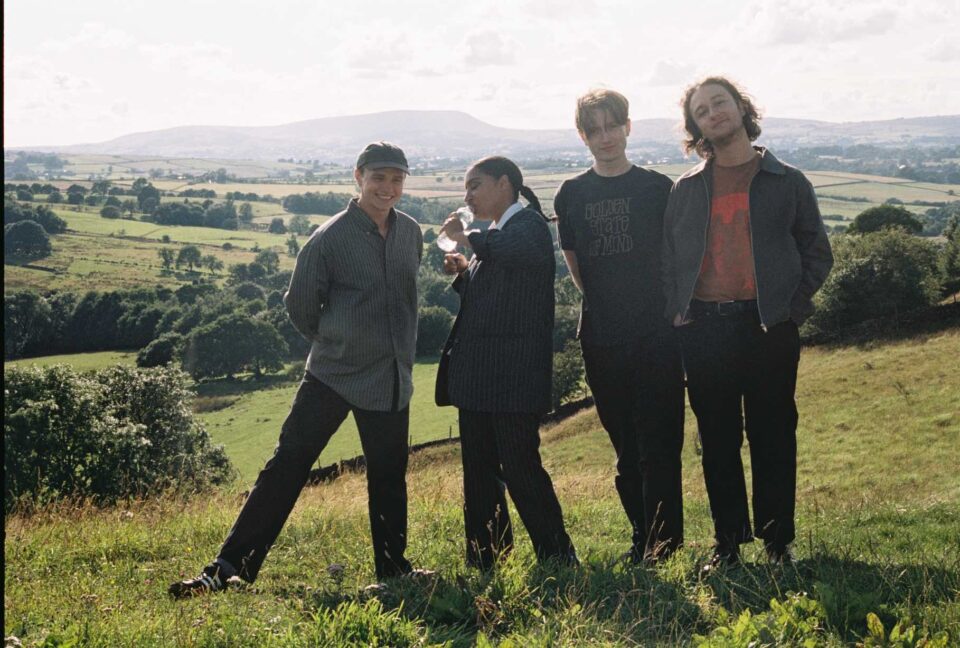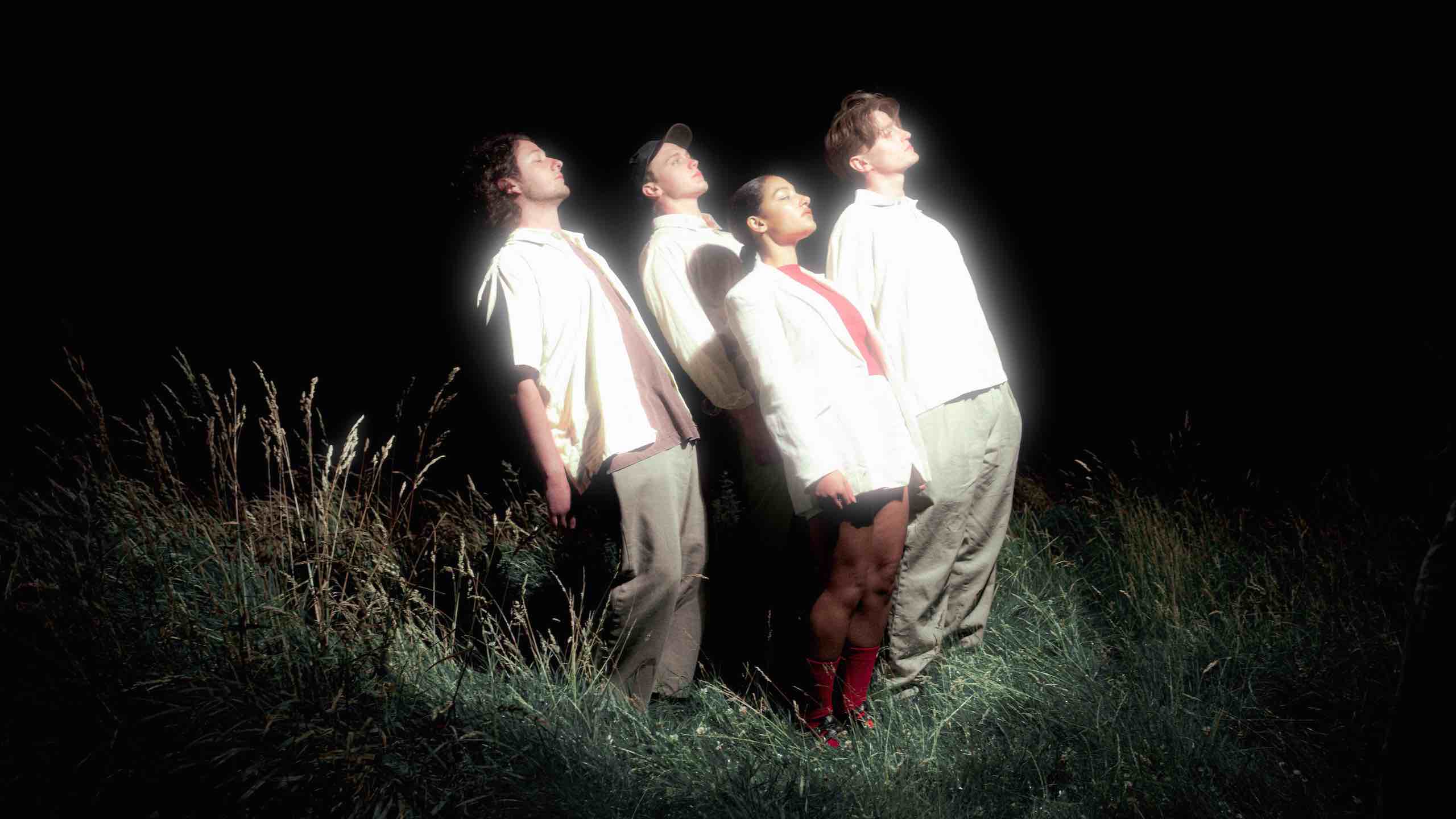BACKSTORY: The quartet of Lily Fontaine, Douglas Frost, Nicholas Eden, and Lewis Whiting began writing songs in university and quickly accumulated a devoted following
FROM: Leeds, UK
YOU MIGHT KNOW THEM FROM: Tours with Yeah Yeah Yeahs and Parquet Courts, or their performance on Later… with Jools Holland
NOW: After signing to Island Records, the band has just released their debut LP, This Could Be Texas
The songs on English Teacher’s debut LP This Could Be Texas mean so much to the band because they serve as a constant reminder of where they came from, as well as where they’re going. Formed in Leeds, the quartet consists of vocalist/guitarist Lily Fontaine, percussionist Douglas Frost, bassist Nicholas Eden, and lead guitarist Lewis Whiting. Many of the songs that make up their new Island Records effort are quite old—some are nearing a decade of existence—and reflect the group’s time in university as they flesh out ideas for compositions that were requirements for graduation.
It’s an album about being in between communities, with lots of Fontaine’s words reflecting her experience as a mixed-race person in an often inhospitable world. On “The World’s Biggest Paving Slab”—perhaps the most British song I’ve ever heard—Fontaine sings of all the worlds she encompasses, all the people she sees herself as: “I am the Pendle witches, John Simm / And I am Lee Ingleby / I am the Bank of Dave, Golden Postbox / And the festival of R&B.” This is kind of how English Teacher operates; an amalgamation of British post-punk both vintage and modern, but spiked with an equally potent dose of originality that makes their debut one of the year’s most original thus far.
“When I was writing a lot of these songs, I never expected them to be given this amount of a platform,” Fontaine tells me. “So it’s a really nice way of recognizing how far I’ve come personally. They’re quite special to me, and I’m so happy that people tend to agree.”
And people do tend to agree. Since dropping the Polyawkward EP in 2022, the band has toured with Parquet Courts and Yeah Yeah Yeahs, sold out a number of UK and European tour dates, and graced the cover on NME. On This Could Be Texas, they cash in on this hype by moving their influences into all sorts of exciting and new places.

On “R&B,” Eden’s bass provides a bouncy undertow for Fontaine to wax poetic about the world she imagines versus the one that’s in front of her. “I’ve been writing R&B for you / I’ve been making you a tea before you know it’s what you need / Tell me, is it too sweet for you? I’ve been writing R&B.” During the chorus, the drums play furiously with manic guitar squeals. Fontaine makes coffee, decides not to write R&B—despite appearances, she doesn’t have the voice for that genre she decides in one of the most clever lines on the album. It sounds like early Bloc Party’s vulnerability with the technical precision and experimentalism of Black Midi, a thrilling concoction proudly indebted to the UK’s rich and diverse tradition of rock music.
The album title, which is equal parts whimsical and rooted in reality, came while the band was walking through a neighborhood in Leeds that was full of concrete, reminding them of the “motorways” in the US. Guitarist Whiting muttered, unassumingly, “This could be Texas.” It made the rest of the band laugh, but it kept on lingering, becoming a mantra of sorts as they began to record their debut LP.
“Over time, we realized that the album’s kind of about displacement and home, the in-between of not belonging anywhere.” — Lily Fontaine
“We had gotten the notification that we were headed to SXSW, and it just sounded like such a good phrase,” Fontaine explains. “Doug wrote a song and I immediately knew it should be called ‘This Could Be Texas.’ It just felt right.” It quickly began to serve as the spiritual center for what the band is all about. “Over time, we realized that the album’s kind of about displacement and home, the in-between of not belonging anywhere.”
It’s something the band feels as they begin to turn from young adults in London and Leeds to a group whose full-time job will take them out on the road for long stretches of time. Even at home, though, they seem stuck between two worlds. Douglas shares that the mileage on his car is getting insane, commuting from London to Leeds for band practice. “The car is my home. The amount of hours I spend in that fucker is quite amazing. But I quite enjoy dotting around. I think we all do,” he explains.
Lewis adds, “Leeds is kind of the spiritual home, but we don’t spend as much time there—except for Lily, [as it’s] where she still lives.”
For English Teacher, This Could Be Texas is an assertion that home is as much where your family is—chosen or inherited—as it is a place on a map. FL









